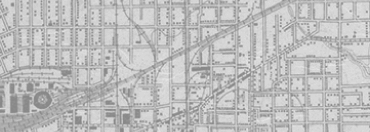


Back
Leslie Beilharz Oral History
Videotaped oral history interview with Leslie Beilharz. A Dallas police motorcycle officer in 1963, Beilharz was at the Dallas Trade Mart and Parkland Memorial Hospital on the day of the assassination. Some researchers believe that his radio microphone was stuck that day, resulting in controversial acoustics evidence later investigated by the House Select Committee on Assassinations in the 1970s. Interview recorded at The Sixth Floor Museum at Dealey Plaza on January 9, 2014 by Stephen Fagin. The interview is forty-eight minutes long.
Leslie Beilharz Oral History
01/09/2014
Born digital (.m2ts file)
Duration: 48 Minutes
Oral History Collection/The Sixth Floor Museum at Dealey Plaza
2014.001.0003
The House Select Committee on Assassinations controversially concluded in 1978 that the Dallas police officer with the stuck radio microphone was H.B. McLain in Dealey Plaza. For an April 14, 1982 story in The Dallas Morning News titled "Doubt Cast on Theory That Pair Shot at JFK," reporter Earl Golz interviewed then-sergeant Leslie Beilharz, who stated that "he believes it was his microphone that was stuck open because he heard no radio reports about the assassination while he waited at his assigned post at the intersection of Stemmons Freeway and Industrial Boulevard," some two miles from Dealey Plaza. Another law enforcement official interviewed by Golz in 1982 was Jim Bowles of the Dallas County Sheriff's Department, who was supervisor of police radio communications in 1963. Bowles said that he had "known for several years about the possibility of the stuck microphone being that of Beilharz or another policeman in the same area," which Bowles declined to name. Based on the available evidence, Les Beilharz said at the time that his microphone being stuck that day was "definitely more a possibility" than H.B. McLain's microphone in Dealey Plaza. -- Stephen Fagin, Curator

Leslie Beilharz Oral History
Videotaped oral history interview with Leslie Beilharz. A Dallas police motorcycle officer in 1963, Beilharz was at the Dallas Trade Mart and Parkland Memorial Hospital on the day of the assassination. Some researchers believe that his radio microphone was stuck that day, resulting in controversial acoustics evidence later investigated by the House Select Committee on Assassinations in the 1970s. Interview recorded at The Sixth Floor Museum at Dealey Plaza on January 9, 2014 by Stephen Fagin. The interview is forty-eight minutes long.
Leslie Beilharz Oral History
01/09/2014
Oral histories
Motorcycles
Evidence
Dallas Police Department
Dallas Trade Mart
Parkland Hospital
House Select Committee on Assassinations
Dallas
Law Enforcement (OHC)
Dallas Trade Mart (OHC)
Parkland Memorial Hospital (OHC)
Authors, Filmmakers, and Researchers (OHC)
Born digital (.m2ts file)
Duration: 48 Minutes
Oral History Collection/The Sixth Floor Museum at Dealey Plaza
2014.001.0003
The House Select Committee on Assassinations controversially concluded in 1978 that the Dallas police officer with the stuck radio microphone was H.B. McLain in Dealey Plaza. For an April 14, 1982 story in The Dallas Morning News titled "Doubt Cast on Theory That Pair Shot at JFK," reporter Earl Golz interviewed then-sergeant Leslie Beilharz, who stated that "he believes it was his microphone that was stuck open because he heard no radio reports about the assassination while he waited at his assigned post at the intersection of Stemmons Freeway and Industrial Boulevard," some two miles from Dealey Plaza. Another law enforcement official interviewed by Golz in 1982 was Jim Bowles of the Dallas County Sheriff's Department, who was supervisor of police radio communications in 1963. Bowles said that he had "known for several years about the possibility of the stuck microphone being that of Beilharz or another policeman in the same area," which Bowles declined to name. Based on the available evidence, Les Beilharz said at the time that his microphone being stuck that day was "definitely more a possibility" than H.B. McLain's microphone in Dealey Plaza. -- Stephen Fagin, Curator








